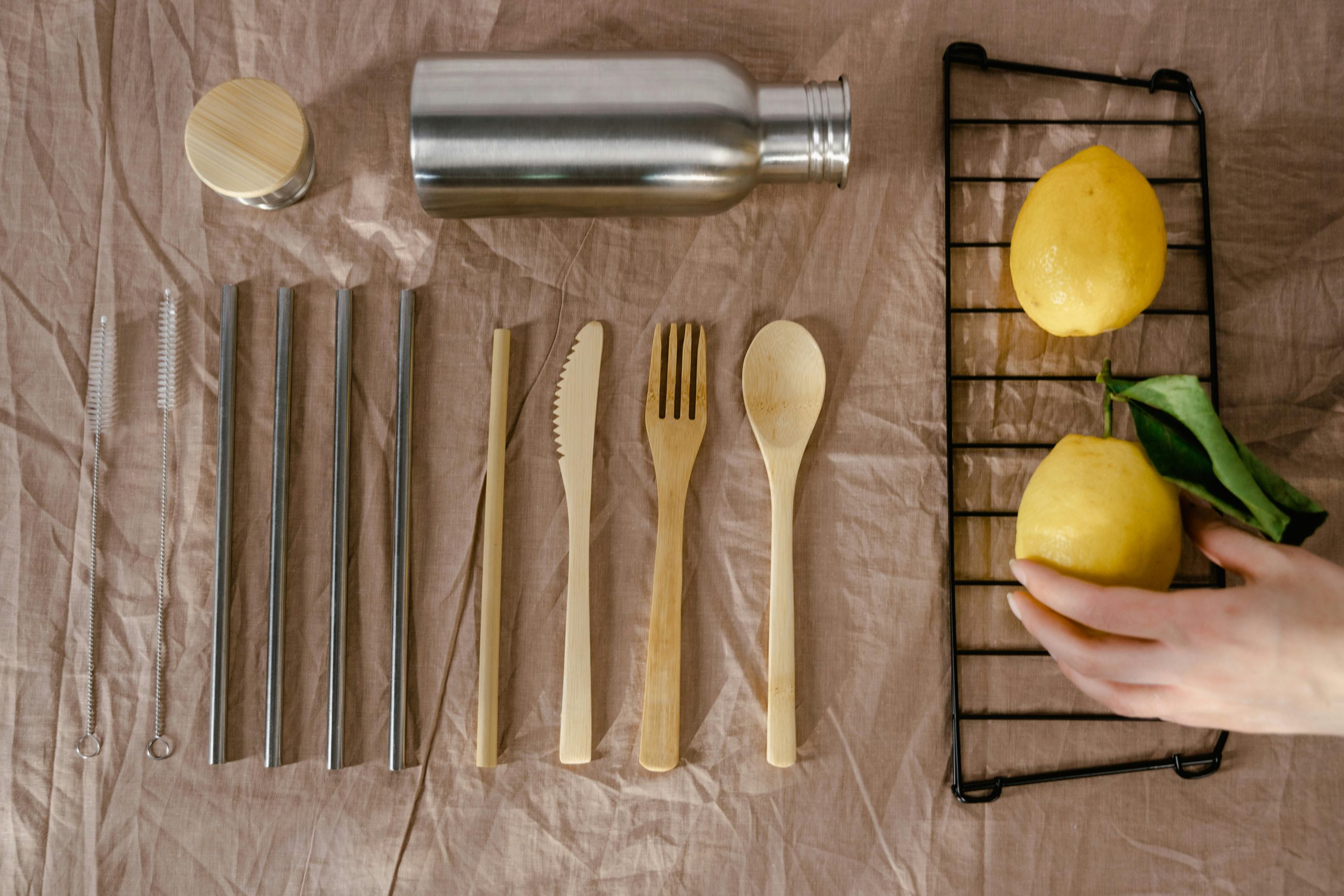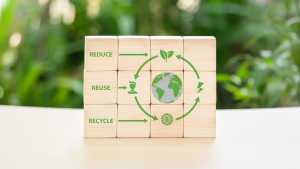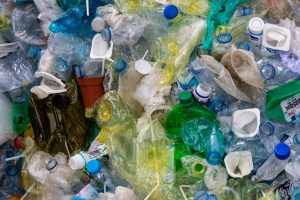The concept of a circular economy has gained prominence in recent times as a sustainable alternative to the traditional linear model of consumption. In the UK, individuals can contribute significantly to the circular economy by adopting small yet impactful sustainable habits in their daily lives. These habits not only reduce environmental impact but also promote responsible consumption and waste reduction.
- Repair instead of replace
One crucial aspect of the circular economy is extending the lifespan of products. Repairing and repurposing items instead of discarding them contributes to resource conservation. Individuals can embrace this by learning basic repair skills or utilising local repair services for electronics, clothing and household items. By doing so, they reduce the demand for new products and minimise the generation of waste.
- Make single-use plastics a thing of the past
Choosing reusable over disposable items is another effective way to support the circular economy. In the UK, the excessive use of single-use plastics poses a significant environmental threat. People can opt for reusable shopping bags, water bottles, drinks containers and coffee cups to decrease their reliance on disposable alternatives. This not only reduces plastic pollution but also lessens the demand for raw materials required to produce such items.
- Reduce consumption, one step at a time
Furthermore, embracing a minimalist lifestyle can be instrumental in promoting sustainability. By being mindful of purchases and avoiding unnecessary consumerism, individuals contribute to a reduction in overall resource consumption. Prioritising quality over quantity ensures that products have a longer lifespan, aligning again with the principles of a circular economy.
- Go local, be greener, feel better
Local initiatives such as community gardens and farmers’ markets also play a crucial role. Supporting local and sustainable agriculture helps reduce the food miles associated with food transportation. Additionally, individuals can participate in composting to divert organic waste from landfills, turning it into nutrient-rich soil for gardens.
- Extend the life of your devices
E-waste is a growing concern in the digital age, and responsible disposal of electronic devices is essential. People can contribute by recycling old electronics through designated programs or donating functional devices to organisations that refurbish and distribute them to those in need.
- Find out more, and never stop learning!
Educating oneself about sustainable practices and staying informed about local recycling programs is key. Many items can be recycled, but improper disposal can contaminate recycling streams. Knowing what can and cannot be recycled helps ensure that waste is managed effectively. One such product is the battery. Most of these can be recycled very easily, but statistics suggest only around 27% of them actually are.
Adopting small sustainable habits in the UK can collectively contribute to the development of a circular economy. From repairing and re-using to embracing minimalism and supporting local initiatives, individuals play a vital role in creating a more sustainable and resilient future. By making conscious choices in their daily lives, people can positively impact the environment and foster a circular economy that values resource efficiency and waste reduction.
Needless to say, the business sector can contribute to a significant shift towards more sustainable practices. Here at Blue Planet Washing Solutions, we offer high-quality washing, drying, storage and logistic services to the events sector and beyond. With our help, your company can become more environmentally friendly, and in the process can save money and create a more positive brand image.
To find out more, just contact the team today for an informal chat. We hope to be speaking with you soon.





